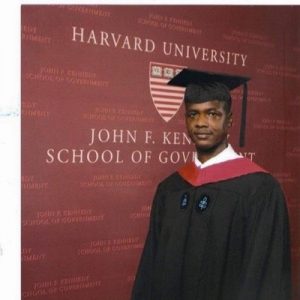

by Alagi Yorro Jallow.
Fatoumatta: Professionalism is scarce in modern-day journalism and media image-making or destruction, especially these days of a liberalized all-comer journalism in the Gambia. Rather than speak to facts, people take to conjectures, prejudices, personal, partisan, and spiritual/religious wishes and preferences, and without humility or intellectual honesty, pontificate and misrepresent facts, all in the name of freedom of speech/expression. Mind what you read. Mind what you feed your mind and intellect with. Some poisons are deadlier.
Citizen journalism and hunter Journalists are part of our problem. They do not know the degree of the harm their poorly worded and nuanced editorials, stories, headlines are doing to our mindset of citizens. When journalists who voraciously, openly and rightfully, clamor for democracy and democratic values think and write using undemocratic expressions, what do you expect. Even a careful reading of their editorials would have spared the editors/journalists the mistake.No because sensational headlines in journalism are all that matters. Isn’t this another way of promoting the dictatorship they all are against? Better than bragging or being unnecessarily incorrigible.
Fatoumatta: The media has a significant duty in nation-building, capable of making or marring it, holding government accountable, albeit accurately. Rumors, unsubstantiated scoops, libelous statements, blatant lies, planted news, falsehoods, innuendos, and ‘tatafoism’ should be left for soft sale magazines for weekend relaxation. Serious journalism is investigative: slow to break the news; patient enough to double-check; professional in accuracy even while being critical; humble to retract, correct, and/or apologies.
Therefore, given what is already quite evident, independent and muckraking journalism is crucial in a democracy. There is no better time to show the Gambian people the type of original journalism and cut the rise of media distortion, bias, fake news, and misinformation that we have witnessed since President Adama Barrow assumed the presidency.
Democracy is characterized by the existence of legal rights among the citizens of a given sovereign state. The people are the sole source of political power, which they should either directly or through representatives. However, the principle of legitimacy is always bound up with the people’s will. Where do the media, a de facto power initially national but has become global -fit into this conception of democratic legitimacy? What principles guide their responsibilities? Where do they stand about the rule of law? These are fundamental questions that need to be adequately answered to fulfill their mandate to society.
How do we analyze future conflicts between the institutional powers by which our Constitution has organized the consultation of the people’s will and the reality of “media power,” which claims to be expressing the masses’ will and cutting across national boundaries? What is the role of muckraking journalism in a democracy?
Fatoumatta: We can recall that muckrakers under Yahya Jammeh defended their rights to exert influence but remained curiously unconcerned that the government might influence them. Muckraker journalism transmits messages to political leaders, whether they belong to the majority of the minority, accompanying them with criticism, of course, but with words of encouragement and not engaging in a big brawl, but as always, a human being and freedom make a beautiful couple.
Muckraking is a controversial practice, but there is no doubt it has definite political effects on the old institutions of representative democracy. Public disaffection with official politics has much to do with the practice of muckraking under conditions of communicative abundance. For instance, in recent decades, much evidence suggests that citizens in many established democracies. However, they strongly identify with democratic ideals, have grown distrustful of politicians, are doubtful about governing institutions, and are disillusioned with leaders in the public sector.
The days of journalism being proud of its commitment to the sober principle that ‘comment is free, but facts are sacred’ are over. References to fact-based ‘objectivity,’ an idea born of the age of representative democracy, are equally implausible. Talk of ‘fairness’ (a criterion of good journalism) is also becoming questionable. In place of the rituals of ‘objectivity and ‘fairness,’ we see the rise of adversarial and ‘gotcha’ styles of journalism, forms of writing that are driven not just by ratings, sales, and hits, but by the will to expose wrongdoing. Muckraking sometimes comes in the highly professional form, as at London’s The Guardian, which played a decisive role in the phone-hacking scandal that hit News Corporation in mid-2011. In another context, muckraking equals biting political satire, of the deadly kind popularized in India by STAR’s weekly showPoll Khol, which uses a comedian anchorman, an animated monkey, news clips, and Bollywood soundtracks (the program title is trans,lated as ‘open election’ but is drawn from a famous Hindi metaphor which means ‘revealing the hidden story).
Fatoumatta: There comes a time you must shake your head in amazement: Where are muckraking journalists today? Moreover, where have all the muckraker journalism gone? In its heyday, between 1992 and 2006, muckraking journalism was ubiquitous, urgent, and influential in the Gambia. The public interest threatened the establishment; the press attacked the establishment. Even in the wake of President Yahya Jammer’s tongue-lashing, investigative journalism continued to power progressive reforms. Where have all the muckrakers gone? Sure, writers are doing impassioned investigative work today. Nevertheless, why do the visible systemic defects and flaws in President Barrow’s style of administration receive so little sustained attention from the mainstream media?
Fatoumatta: The magic of the progressive era muckraking was its centrality. The Gambian media no doubt had its dedicated muckrakers such as the late Deyda Hydara, Swaebou Conateh, Baboucarr Gaye, Demba Jawo, Bijou Peters, Anna Sagnia, Alieu Badara Njie, Momodou Musa Secka, A, A Barry, Justice Fofana, Demba Jawo, Ebrima Ceesay, Lamin Cham, Abdul Savage, Ansumana Badjie, Alieu Badara Sowe, Sheriff Bojang Snr, Sorie Danso, Cherno Ojuku Sesay, Foday Samateh, Cherno Baba Jallow and later The entire newspaper team, as well as others like Pa Nderry Mbai, Alhagie Mbye, Assan Sallah, Sanna Camara, Sulayman Makalo, Omar Bah, NB Daffeh, Musa Saidykhan, Ndey Tapha Sosseh, Momodou Musa Touray, Abdoulie Jatta, Abdoulie Sey, PK Jarju (the list goes on) wrote for mass-market newspapers. They turned local issues into national issues, local protests into national crusades. They did not preach to the converted; they did the converting, help transform the Gambia from a state of laissez-fairer to a welfare state mentality.
However, the Gambian muckrakers of the Second Republic did not get scared of the draconian media laws and military decrees that local journalism to any meaningful degree; for the simple fact, that the Gambia Press Union in terms of the organization was exceedingly powerful therefore possessed the strength to withstand virtually any challenge or could take on the government anytime. Another reason for the success of muckraking might has been sociological. The Gambian journalist is an irascible, hungry, paranoid type. The GPU members saw evil and conspiracy at work. Consequently, its members viewed their role as that of the avenging angel who must root it out whenever it occurs.
Ever since the dawn of the military dictatorship, the private media did a magnificent job of reportage. They had been continuously flexing their muscles on all issues of national concern.
Fatoumatta: Joseph Goebbels, the Nazi Minister of Enlightenment and Propaganda, acknowledged as one of the most brilliant propagandists in history, was correct when he said ….
“If you tell a lie big enough and keep repeating it, people will eventually come to believe it. The lie can be maintained only for such time as the State can shield the people from the lie’s political, economic, and military consequences. It thus becomes vitally important for the State to use all of its powers to repress dissent, for the truth is the mortal enemy of the lie. Thus by extension, the truth is the greatest enemy of the State”.
We see Goebbels’s doctrine evident today in the Gambia through the Barrow administration and the bureaucrats inside the Quadrangle and Marina Parade, repeated over and over by a subservient national media, almost without question. The media has forgotten that its primary duty is public enlightenment, which is the forerunner of justice and the foundation of democracy. The journalist must further those ends by seeking truth and providing a fair and comprehensive account of events and issues.
Conscientious journalists from all media and specialties strive to serve the public with thoroughness and honesty. Furthermore, a journalist must recognize that he/she has a special obligation to ensure that the public’s business is conducted in the open and that government records are available for inspection. Professional integrity is the cornerstone of a journalist’s credibility. Journalism is a public trust. Consumers need to trust that they have done everything possible to confirm it every time they share information.
Fatoumatta: Seldom do political changes occur overnight. They come about incrementally and are often so subtle that the architects often fail to see it happen. Therefore, President Barrow was the “Stealth or even Manchurian candidate.” So, little was known about the man, not even his ethnic background; and mainstream journalists did not bother to do their homework, violating the very code of conduct professed by the journalist associations. One thing in evidence was that Barrow’s only claim to fame was that of “real estate developer” and as a security guard with Argo in the United Kingdom.
As I have said throughout the past, I am not an ardent supporter of conspiracy theories, but how many journalists have taken the Barrow administration to task over the Goebbels-like stories of how the economy and human rights will be improved and are improving? Let us take the unemployment figures apart and see the Constitution’s constant onslaught outside the constitutionality regarding the separation of powers. That may be politically incorrect to the intellectually stupid elite. However, it is high time someone shows President Barrow the errors of his words. That should be the media’s job, which by their code, has pledged to tell the truth, the whole truth, and nothing but the truth.
Fatoumatta: Progressive era muckraking in the Gambia was hardly a crusade of virtuous outsiders against entrenched and corrupt interests. Nevertheless, it was, nonetheless, a powerful force for reform. So, again, where have all the muckrakers gone!

